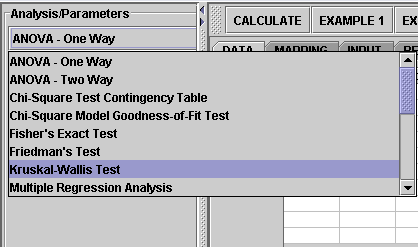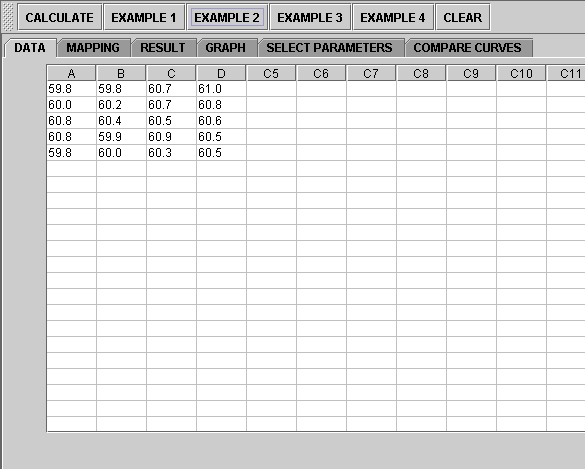SOCR EduMaterials AnalysisActivities KruskalWallies
SOCR Analyses Example on the Kruskal-Wallies Test
The Kruskal-Wallies Test is a generalization of the Two Independent Sample Wilcoxon Test. While the latter one test for two groups, the Kruskal-Wallies Test test multiple groups. Suppose there are k groups, the hypotheses are written as:
Null Hypothesis H_0: All of the k population distribution functions are identical. Alternative Hypothesis H_A: At least one of the populations tends to yield larger observations than at least one of the other populations.
The example we show here is from "Practical Nonparametric Statistics" by Conover, Second Edition, John Wiley & Sons, 1980. (Page 230)
Steps:
1. The data of this example has 4 groups: A, B, C and D. Click on "Two Independent Kruskal-Wallis Test" from the conbo box in the left panel.


2. Click on "Example 2" button. than the "Data" button to see the data.

3. The data need to be send to the computer for analysis. In the Kruskal-Wallies test, at least two groups need to be included. You can certainly include any two groups, any three groups, etc., from the data set. The test will only analyze the groups selected. Therefore, you'll need to let the computer know what groups you're choosine. This is done in the "Mapping" panel. Click on the "Mapping" button to include the groups you want.

4. Next, click on the "Calculate" button. Now you're ready to see the results. Just click on the "Result" button.

Scroll down to see complete results.
Note: if you happen to click on the "Clear" button in the middle of the procedure, all the data will be cleared out. Simply start over from step 1.